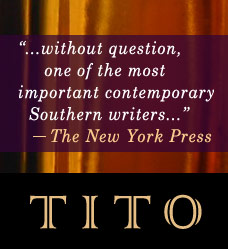The Coming of the Regulator
How strange, that the young people of today have no apparent collective familiarity with the seminal events of 2017-22, that “social earthquake,” so-denominated, that established the foundations of our current happiness. Indeed, a recent poll carried out by the J. W. Booth Institute suggests that as much as 14% of the youthful population could not immediately identify the official oil painting of Regulator Leland (“Lee”) Pefley on display in our nation’s capitol in Richmond. It might seem therefore that the time has come to review the signal achievements of this epoch-making individual who, if it is not too much to claim, restored our republic to the condition that in the normal course of events it could (and should) have assumed some seventy or eighty years earlier.
But first, recollect how this person ascended to the newly formed emergency position of Regulator, a last ditch measure to shore up our national boundaries and restore some, at least, of the features of the by-then forgotten American Constitution, (to employ the nomenclature of the nostalgists of that day). Prior to having dissolved itself in the autumn of 2015, you will remember how the Senate in its final action had set up this new position, granting wide executive powers agreed to endure for five years. Remember, too, that the quality of our higher officers had already begun to improve somewhat, owing to the new method of selection by lottery. Even so, (you must also recall) our society remained in the most parlous condition, the “War Without Pity” still raging in full flood between The Junta, The Bloods, and The Caucasoid Rump.
But first, recollect how this person ascended to the newly formed emergency position of Regulator, a last ditch measure to shore up our national boundaries and restore some, at least, of the features of the by-then forgotten American Constitution, (to employ the nomenclature of the nostalgists of that day). Prior to having dissolved itself in the autumn of 2015, you will remember how the Senate in its final action had set up this new position, granting wide executive powers agreed to endure for five years. Remember, too, that the quality of our higher officers had already begun to improve somewhat, owing to the new method of selection by lottery. Even so, (you must also recall) our society remained in the most parlous condition, the “War Without Pity” still raging in full flood between The Junta, The Bloods, and The Caucasoid Rump.









0 Comments:
Post a Comment
<< Home